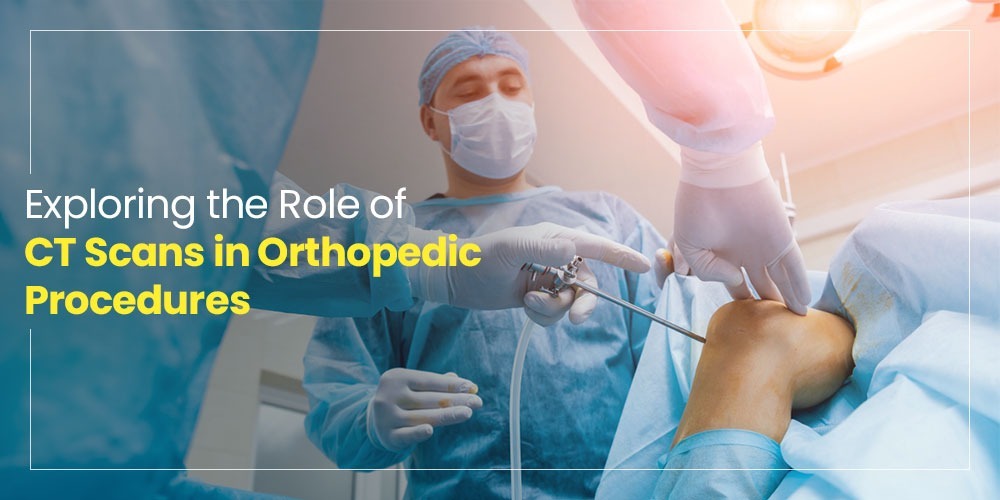CT scans, also known as computed tomography scans, offer a detailed cross-sectional view of the body, allowing physicians to examine bones, joints, and soft tissues with exceptional clarity. Unlike conventional X-rays, which provide a two-dimensional image, CT scans create a three-dimensional reconstruction of the area of interest. This view enables doctors to visualize the exact location, size, and nature of orthopedic conditions, facilitating accurate diagnosis and personalized treatment plans.
Using CT scans have revolutionized bone health across medical settings by helping surgeons to check in-depth musculoskeletal conditions with three-dimensional. From fracture detection to comprehensive joint assessment, CT imaging provides orthopedic specialists with detailed, views of bones and surrounding structures.
How CT scans is Helping in Orthopedic Procedures?
- Help Detect Damage to Bones and Soft Tissues: CT scans provide highly detailed cross-sectional images of bones, joints, and surrounding soft tissues, allowing orthopedic specialists to visualize the anatomy with exceptional clarity.
- Fracture Detection: CT scans are particularly effective in detecting and characterizing fractures, including subtle or complex fractures that may not be fully visible on conventional X-rays.
- Surgical Planning: CT scans help orthopedic surgeons in planning complex procedures such as fracture repair, joint replacement, and spinal surgery. The detailed images aid in determining optimal surgical approaches and implant placement.
- Evaluation of Joint Integrity: CT scans assess the integrity of joints, including detecting signs of degeneration, osteoarthritis, and ligamentous injuries, providing essential information for treatment decisions.
- Preoperative Assessment: Prior to surgery, CT scans help orthopedic surgeons assess the extent of bone damage, identify any associated soft tissue injuries, and anticipate potential intraoperative challenges, leading to more successful outcomes.
- Postoperative Evaluation: Following orthopedic procedures, CT scans enable doctors to evaluate the accuracy of surgical interventions, assess bone healing, and detect any complications such as implant malposition or hardware failure.
- Customized Treatment Plans: By providing detailed anatomical information, CT scans facilitate the development of personalized treatment plans tailored to the individual patient’s needs, optimizing outcomes and minimizing risks.
CT scans are essential in India’s medical sector, providing accurate imaging for bone health, aiding diagnosis, treatment planning, and improving orthopedic care. Hence, every healthcare setting must have them.

